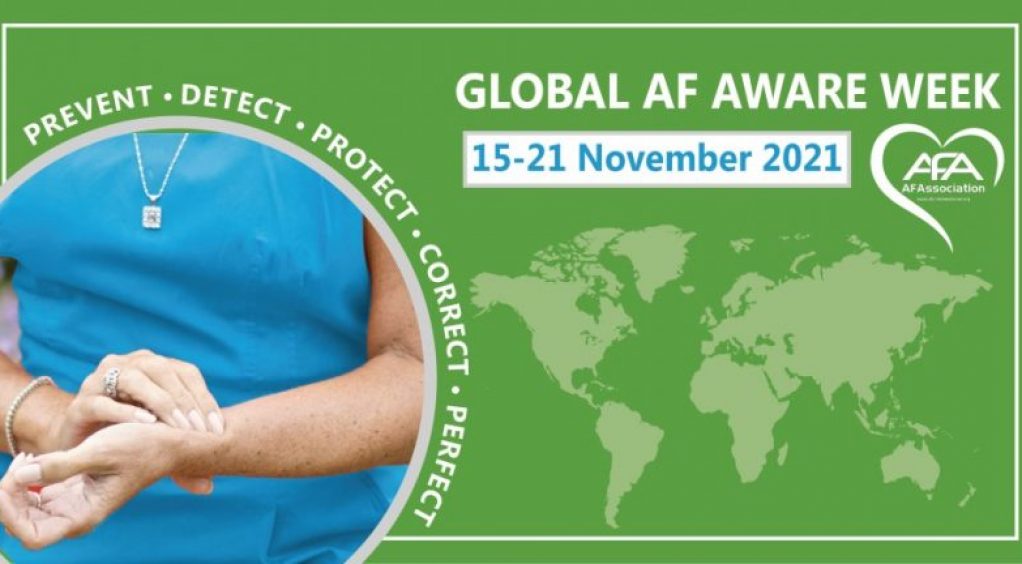AF Association Global AF Aware Week: 15-21 November 2021
Each year, AF Association hosts Global AF Aware Week (GAFAW) to raise awareness of atrial fibrillation (AF). AF is the most common type of arrhythmia (heart rhythm disorder) and is a major cause of stroke. It is also linked to heart failure, depression, and poor quality of life.
For 2021, our key message is “No More Time To Lose” to address the impact of the pandemic on people with, or at risk of, AF. Over the last 18 months, we have lost opportunities to PREVENT AF with healthy habits, DETECT AF with a simple pulse check, PROTECT against AF-related stroke with anticoagulation, CORRECT the irregular rhythm with access to appropriate treatments, and, thus, PERFECT the patient care pathway. Because of these missed opportunities, as we emerge from the pandemic, we have No More Time To Lose.
Atrial Fibrillation Fact Find file
Derby and Derbyshire
Public Health England estimated in 2016 that there should be 27,876 patients diagnosed with Atrial Fibrillation in Derby & Derbyshire STP. In March 2015 there were 19,193 on the AF register which meant that the gap in AF diagnosis was 8,683 patients. Patients with diagnosed AF accounted for only 68.9 % of the estimated number of patients with AF.
The gap in AF diagnosis has reduced from 8,863 in March 2015 to 4,000 in March 2019 (from 31.1% to 14.3%)
The NHS Plan target is for 85% of estimated number of AF patients to be diagnosed by March 2029. Derby & Derbyshire STP have diagnosed 85.7% of the estimated number of AF patients as at March 2019.
In March 2015, only 72.1% of AF patients at high risk of stroke were receiving anticoagulation treatment. In March 2019, 87.7% of AF patients at high risk of stroke are receiving anticoagulation treatment. The NHS Plan target is for 90% of AF patients at high risk of stroke to be adequately anticoagulated by March 2029.
An additional 10,045 AF patients at high risk of stroke are receiving anticoagulation treatment between March 2015 (7,587 patients) and March 2019 (17,632 patients). This is an increase of 132%.
The additional 10,045 high risk AF patients on anticoagulation treatment will lead to a reduction in strokes and deaths each year of:
Additional high risk AF patients anticoagulated: 10,045
Less Strokes: 271
Less Deaths: 90

